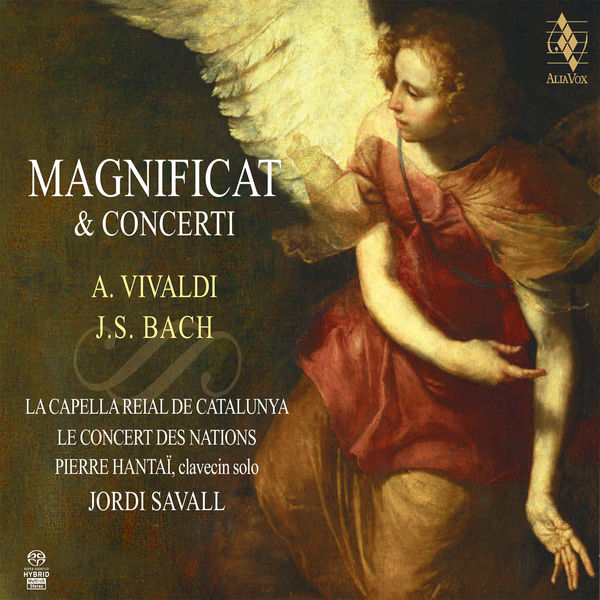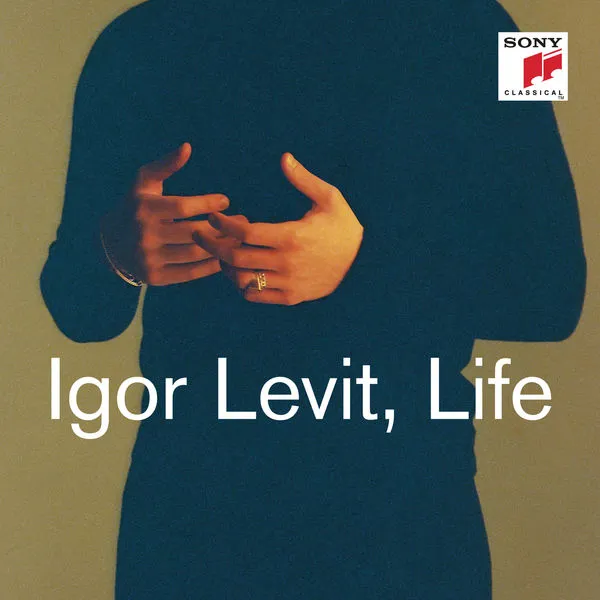Magnificat BWV243
Actually, the Magnificat isn’t per see a Christmas-related work. It was however apparently very early on performed on Christmas Day, so it stuck around as a seasonal work. From a content perspective, this is actually about Mary, not Jesus.
This beautiful choral work has been recorded over and over again.
So instead of just picking up one version, let me write about 3 different versions that all have their merits, by outstanding musicians.
John Butt, Dunedin Consort (Linn 2016)

John Butt takes the Christmas connection seriously, and tries to fully reconstruct Bach´s own Christmas performance in Leipzig. Appropriately, you get some organ music and the Christmas Cantata BWV 63. He even intersects a Vom Himmel Hoch Da Komm Ich Her, a traditional German Christmas Carol, in the middle of the work.
I’ve previously mentioned this album in my comments about the Gramophone Awards nominees in 2016, giving this album 5 stars. My high opinion hasn’t changed, it still is one of the most beautiful version around, and combined with Linn´s excellent recording skills, this is very much worth having. Particularly memorable about this performance is the choir in all its glory.
But let’s look at two recent alternatives:
Bach: Magnificat / Vivaldi: Dixit Dominus – Vox Luminis – Lionel Meunier (Alpha 2017)

This is the most recent release among the three I´ll be writing about. The French Alpha label (OutThereMusic) is one of the most reliable labels I know, usually you can buy them nearly blindly. Nicely enough these days you don’t have to as they are available on most streaming services, which is also what I did first.
Vox Luminis I must admit was new to me, but a bit of research tells me it is an outstanding early music choir from Belgium (a hotspot of early and historically informed performance if there ever was one). And increasingly, they are not only a choir but also built up their own early music orchestra with it.
So how different is this version? Well, if Dunedin is all about sparkle, this is more about nuance and detail. Both really are outstanding recordings of the Magnifcat, you’ll just get a different perspective. So, talking colors, Dundedin is sparkling, polished gold, whereas Vox Luminis is more dark bronze. Both are beautiful in its own right.
What’s different here is the coupling, you get Vivaldis Dixit Dominus here. I’ve previously stated that I’m not a particular fan of the Red Priest, but this is one of the works that is certainly nice having in your catalogue.
Overall: Highly Recommended.
Bach / Vivaldi: Magnificat & Concerti – Jordi Savall – Le Concert des Nations

This is the “oldest” of the three recordings, but still pretty recent, as released in 2014.
I absolutely had to include it here, as I just noticed my entire blog in spite of its 2,5 years of existence hasn’t mentioned one of the grand masters of early music yet, the brilliant Jordi Savall.
Jordi Savall, with his trusted ensembles of La Capella Reial and Le Concert Des Nations, is a legend in early music performance. If you don’t know him yet go and discover some of his many outstanding releases.
Interestingly enough, baroque music is already relatively “late” for Savall who focused quite a bit on the pre-baroque era.
But here he shines, particularly in the Magnificat. Comparing to the two version above, this is the most “balanced” approach, mixing the brilliance of the Dunedin´s with the more intimate performance of Vox Luminis.
Very interesting here are the fillers. Again, no fan of Vivaldi, but both the concerto for two violins and Vivaldi´s own Magnificat are quite pleasing. Nothing I´d go out to buy personally.
But the moment we move from Italy to Germany, this album really becomes outstanding. As mentioned, Bach´s Magnificat is close to perfect, And then you get a very surprising filler again, with Bach, with his keyboard concerto BWV 1052.
And who is the soloist, if no other then my beloved Pierre Hantai (see also here and here). I must admit I’m still looking for my perfect version of the Bach keyboard concertos. This one won’t be my reference as Hantai has the occasional quirk (he certainly is a character) that I don’t necessarily always appreciate, but one thing is for sure, you won’t regret having this version in your library. I keep coming back to it all the time.
Summary
There really is not a winner here. Check all of them out, look at which filling material you prefer, no matter what you choose, you’ll make a good choice. The Dunedin may have a slight advantage from an audiophile perspective, but all three recordings are of very high audio quality and are available as high-res recordings, so you really have the beauty of choice here.
My rating for all three albums: 5 stars
Update Dec 20, 2017: For once, I don’t really agreed with the latest recommendation by both Classica and Gramophone, who strongly recommend the very recent release of John Eliot Gardiner on SDG. Already the opening movement of the Magnificat sounds so rushed that it reminds me in a way of a 33 tours LP played at 45 RPM. May just be me, but I don’t get it. On the other hand, Classica was only so-so about the recording of Vox Luminis. All these reviews can be found in their December 17 issues. Doesn’t change my opinion above obviously.




















